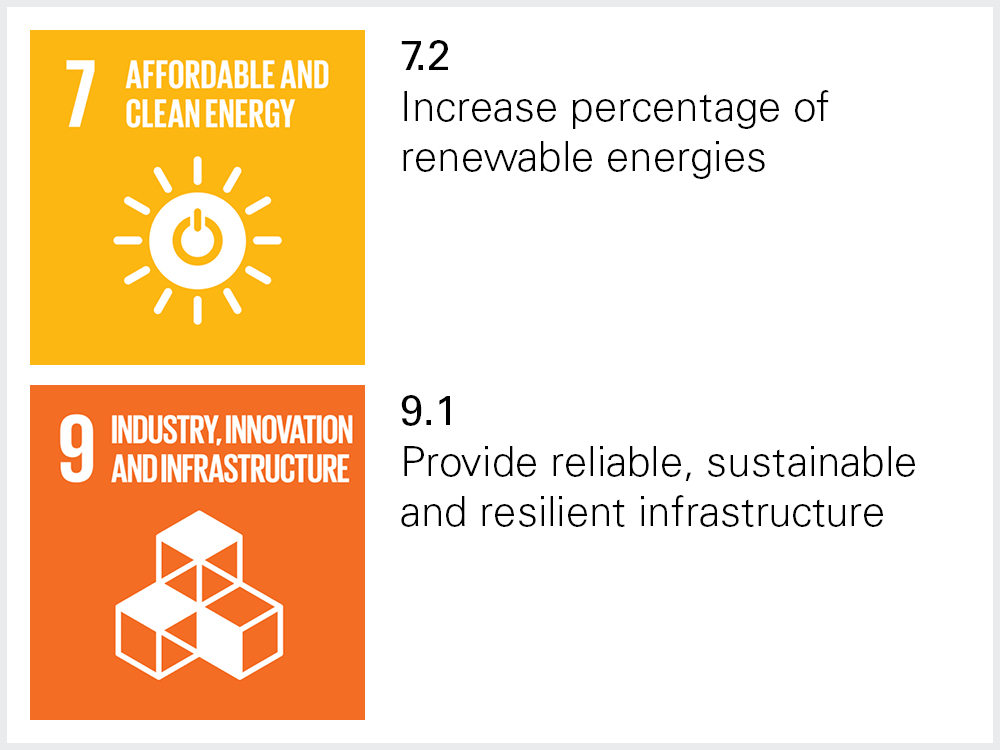Real Estate

The increase in student numbers and life sciences research requires a corresponding expansion of campus infrastructure, including new construction. Two new buildings opened in 2021: the new home of the Department of Sport, Exercise and Health in the St. Jakob area and the new Biozentrum in the St. Johann neighborhood. Issues of sustainability were taken into consideration during the planning phases for both buildings.
The University of Basel has more than 80 buildings, all of which are used in very different ways. This poses challenges when it comes to sustainable real estate management. Besides economic considerations, technological equipment, efficiency and flexibility, security, energy consumption and accessibility also have to be taken into account. In the university’s real estate strategy, published in 2020, sustainability is a core consideration when it comes to construction.
New Biozentrum with Minergie-P certificate
The University of Basel’s new, state-of-the-art Biozentrum opened in September 2021, in the St. Johann neighborhood. The 73-meter-tall building houses 32 life sciences research groups and the university’s IT Services. Its lecture halls and seminar rooms provide space for over 1,100 students. The building is certified with the Minergie-P label due to its energy-efficient building envelope. There was also an increased focus on the eco-friendly use of materials in the planning and construction phases. Eco-friendly commuting is encouraged by 950 above- and below-ground bicycle parking spots.
One building for everyone
In November 2021, the University of Basel opened its first new building located in the sponsoring canton Basel-Landschaft: the new home of the Department of Sport, Exercise and Health in Münchenstein. The aim was to bring together all the department’s previous locations in one central place. This allowed for more efficient use of space and fewer trips between locations. The new building provides classrooms, study space, examination rooms and research facilities for the department’s approx. 600 students and 100 staff in one location. The building’s basement houses a large gymnasium that can be divided into separate spaces. The landscaped central courtyard serves as a meeting point intended to facilitate connections between students, researchers and lecturers. The building of a photovoltaic system on its roof is planned for 2024, and will provide a large portion of the building’s energy.
New tropical house with intelligent climate control
Construction of the new tropical house in the University of Basel’s Botanical Garden began in 2019 and was completed in 2022. It replaces the former tropical house from 1964, which was badly damaged due to the extreme differences in climate between the interior and exterior. A great deal of energy is required in order to achieve the necessary climatic conditions in the topical house. For this reason, the new building has intelligent technical controls that manage the interplay between exterior and interior air in order to minimize energy consumption. The use of as much outdoor air as possible helps to achieve significant energy savings. Energy shielding also helps to improve heat retention, thus further improving energy efficiency.
Goals & actions
Implement and ensure sustainable construction
Incorporate sustainability into construction of new buildings, beginning with the invitation to tender
Develop minimum standards for sustainability of new buildings of which the University of Basel is the tenant (integrate into functional specifications, leases)
Facilities
Facilities


